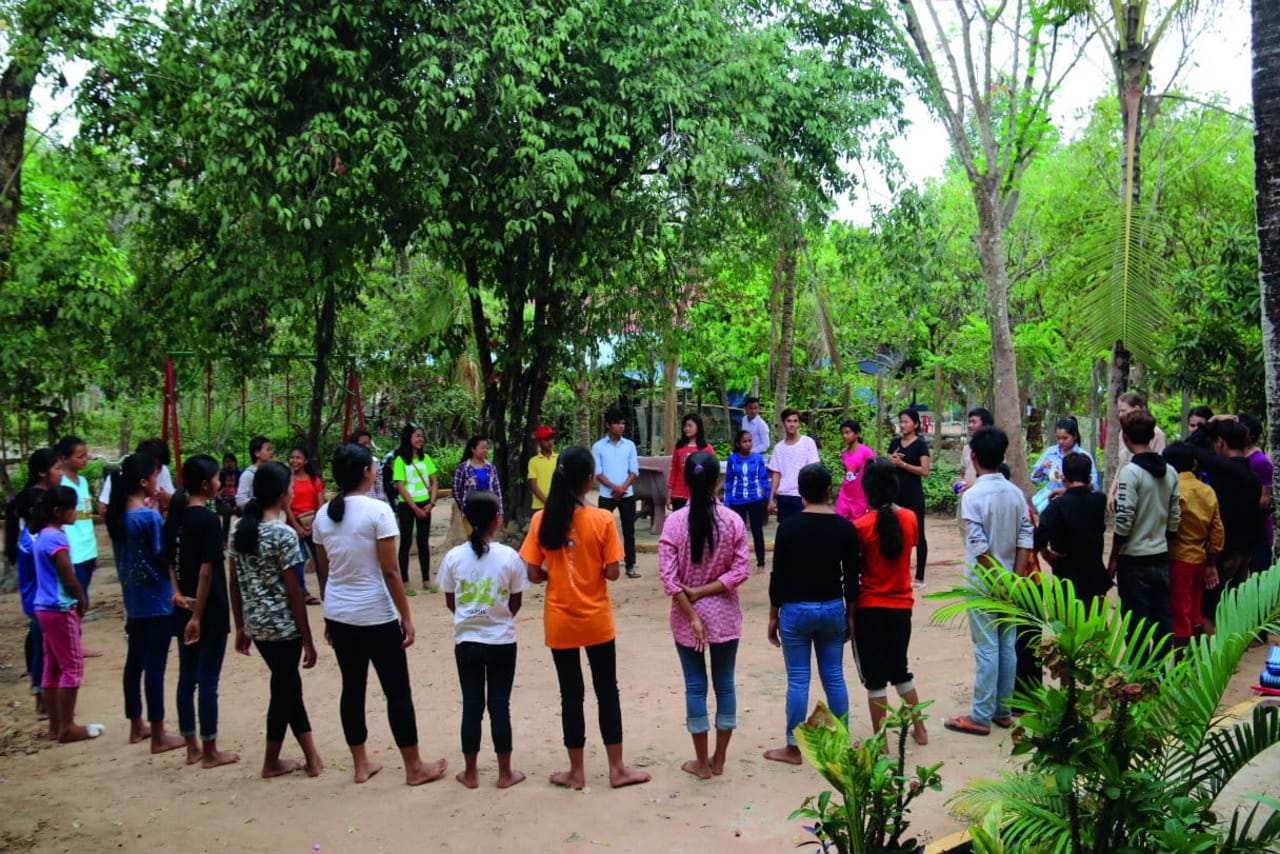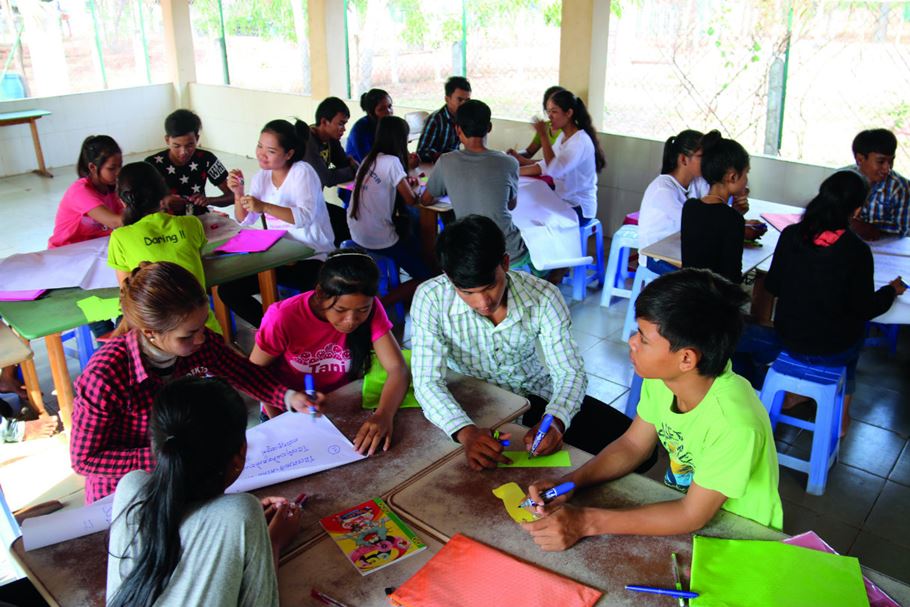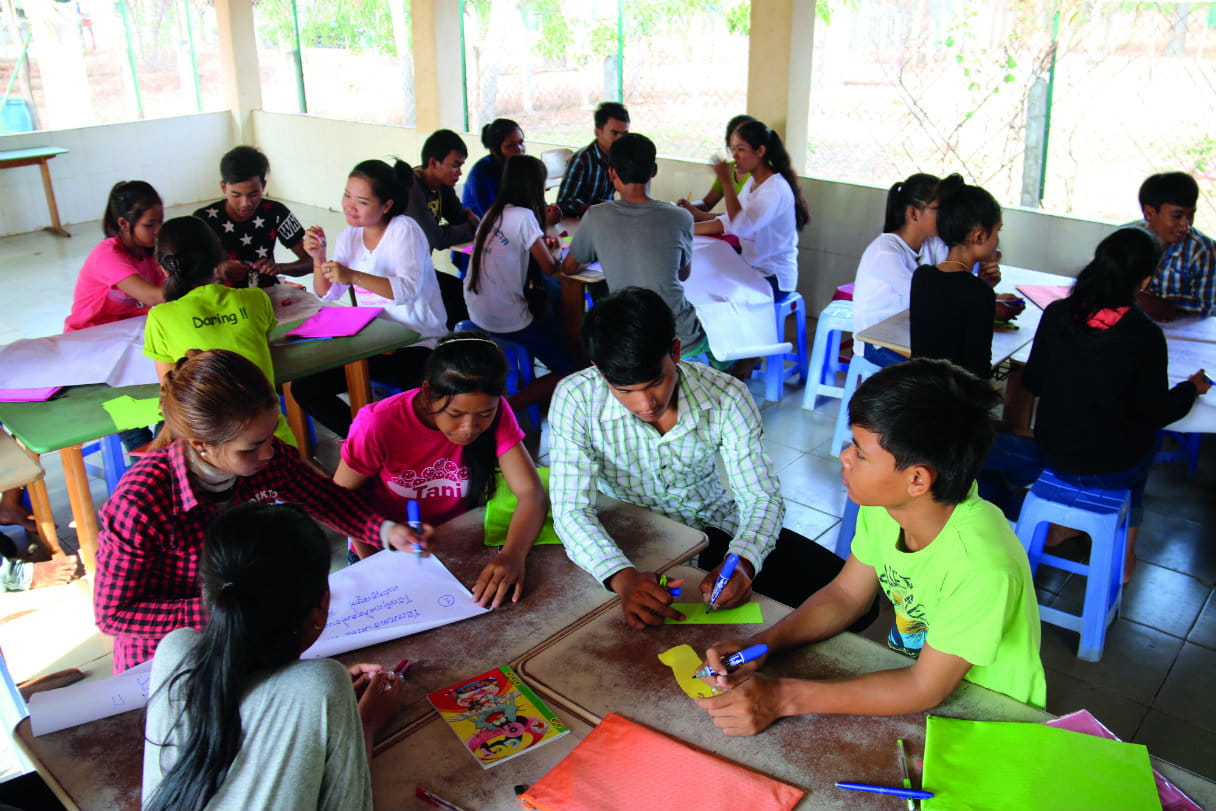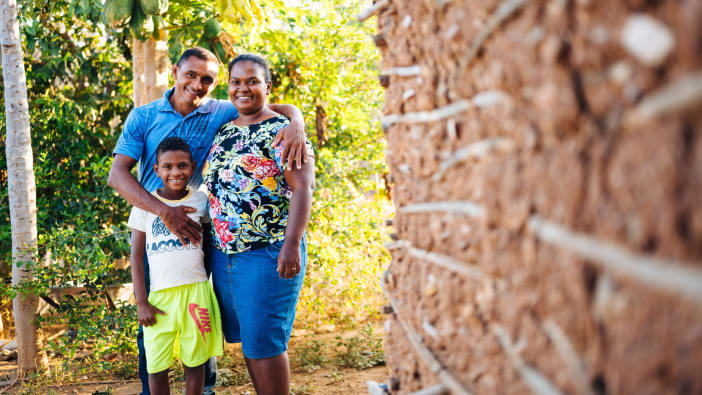The M’lup Russey Organisation is transforming the way vulnerable children and young people are cared for in Cambodia. We are passionate about promoting alternatives to institutional care for children, and do a lot of work in this area. But we also recognise that it takes time for an orphanage to transition, and that children need support while they are still in institutions.
Afraid of the world outside
In 2007, M’lup Russey staff held workshops with more than 500 young adults living in orphanages. All spoke of their fears about leaving the orphanage. They were afraid of ending up discriminated against, victimised, jobless and homeless. Some were even afraid they would starve. They feared they no longer had the skills to be part of an outside community.
Sadly, there are good reasons for these fears. Without careful preparation, young adults leaving orphanages in Cambodia struggle to fit back into community and family life. They are extremely vulnerable to exploitation, abuse and trafficking. Orphanages do not remove their vulnerability, but only delay its effects. In many cases, their vulnerability is increased because of their stay in the orphanage.
M’lup Russey supports children while they are in residential care – but our work does not stop there. We do all we can to help young people successfully rejoin their community when they leave.
Building relationships
First, M’lup Russey builds relationships with the directors of residential care centres. We invite them to training events so they can improve the way they care for children. We also help them to understand and apply the government’s alternative care policy, which sees family-based care as a better model. Over the years, we have trained orphanage directors in child rights, child protection, child participation, anger management, proper reintegration processes, centre management, understanding the needs of children and youth, leadership skills and more.
After building relationships with the directors, M’lup Russey can begin working with the children and young people in their care. We offer them the chance to take part in peer support groups and life skills training. These help young people learn the skills they will need to be safe, independent and socially included when they leave the centres.
Youth clubs
M’lup Russey supports young people to set up youth clubs in their centres. The clubs’ activities build the young people’s self-confidence, freedom and ability to live safely in a community in the future. The youth club members elect their own leaders and decide on their own structure and schedules. The clubs give them a voice in the centre. They help the young people express themselves freely and prepare them for independence.
All this trains them in how to be leaders, facilitators and responsible team players. It improves their communication and work skills, and helps them relate well to others. Thanks to M’lup Russey, hundreds of young people have been members of orphanage youth clubs since 2008!
Life skills training
M’lup Russey also offers life skills training and vocational training scholarships to young people living in centres. These workshops are taught by professionals and experts. They cover more in-depth topics, such as
- ‘knowing myself’
- communication skills
- living safely in the community
- anger management
- reproductive health
- drug awareness
- money management
- life planning
- goal setting.
Further support
These support services give M’lup Russey the opportunity to build strong, trusting relationships with children and young people in residential care centres. They can then offer them other services, such as counselling and legal advice, as well as support when they eventually leave residential care.











